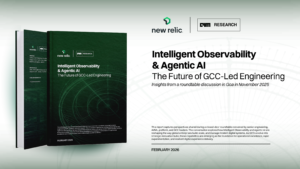As generative AI continues to revolutionise businesses, understanding and applying a human-centric strategy is not only advantageous, but also necessary. As organisations seek to use the potential of these powerful algorithms, there is a growing realisation that AI development must be consistent with human values, ethics, and well-being. This approach, known as human-centric AI, is not simply a lofty ideal, but also a realistic requirement for ethical and sustainable AI implementation.
To delve deeper into this critical topic, we convened a roundtable of distinguished industry leaders and experts. Our panelists included Biswanath Banik, Director of Data at Kredivo Group; Aishwarya Gupta, Global Solutions & AI & Automation Offerings Practice Head at Wipro Limited; Ravi Balasubramanian, Vice President of Data Science & Analytics at Victoria’s Secret & Co; Pramod Rawat, Executive Director of Generative AI/ML, Data Analytics & Cloud Product Management; Narasimha Medeme, VP Head of Data Science at MakeMyTrip; and Uday Nedunuri, Head of Data Science at the Department of Culture and Tourism – Abu Dhabi.
From prioritizing safety and ethics to enhancing customer experiences and empowering employees, our panelists share their perspectives on how businesses can leverage generative AI while keeping human interests at the core. They also discuss navigating compliance challenges, ensuring fairness and transparency in model development, and the promising applications of AI in various sectors.
Understanding Human-Centric AI
Broadly, human-centric AI is defined as AI that keeps human interests at its core. In any business, there are four main categories of human touchpoints: customers or end users, employees, stakeholders like investors, and the broader community, which includes anyone outside the first three.
What we’ve seen is that different companies, when building out their AI or Gen AI use cases, focus on these groups to varying degrees. For example, autonomous vehicles have been a poster child of AI, designed with the end user in mind. It’s convenient for taking you home after a night out or helping you get more work done on your way to the office. However, from a broader community perspective, it doesn’t solve issues like traffic congestion or parking problems. These problems remain and may even be exacerbated by new issues, such as who takes responsibility in case of an accident. Therefore it is important to understand how the AI systems developed and deployed by today’s businesses influence the various human factors and to what extent.
– Biswanath Banik, Director of Data at Kredivo Group
Autonomous cars as a classic example of how AI is gradually penetrating our lives. As these technologies evolve, we start experiencing their real-world outcomes. When discussing human-centric and generative AI, it’s about prioritizing safety and aligning with human vision and values. Generative AI, like any evolving technology, aims to advance human evolution and bring about revolutionary changes.
It’s crucial to focus on the safety and robustness of these technologies to mitigate potential risks. While prototypes and experiments are breakthroughs, they haven’t yet successfully mitigated all risks in real-world environments. Human-centric AI requires collaboration with human experts, incorporating empathy and emotions while enhancing productivity and empowering technology to handle repetitive tasks.
In any evolving technology, the goal is to better human evolution, taking a step forward in human history. However, despite significant advancements, we haven’t been very successful in making these technologies safe and robust in real-world applications. It’s essential to involve human experts to ensure these technologies align with human values and ethics.
Generative AI must be deployed responsibly, ensuring it prompts user interactions ethically without causing harm. The focus should be on social benefits and avoiding real-world issues. In summary, while generative AI technology is transformative, it is vital to maintain a human-centric approach, prioritizing safety, ethics, and collaboration with human experts.
– Aishwarya Gupta, Global Solutions & AI & Automation Offerings Practice Head at Wipro Limited
Empowering Associates and Enhancing Customer Experience
Like all retailers, we are exploring several associates and customer-facing use cases leveraging generative AI. The systems we are building and testing internally have a strong human-centric element. Developing these AI systems with a human-centric approach involves prioritizing safety, ethics, and collaboration with human experts. We aim to assist our associates, enhance customer interactions, and ensure responsible AI deployment that benefits both our associates and customers.
– Ravi Balasubramanian, Vice President, Data Science & Analytics at Victoria’s Secret & Co
Navigating Compliance and Ethics in AI Development
In my opinion, the role of a human-centric approach is crucial because both technology and human-centric elements must run in parallel in our products and platforms.
The role of compliance becomes very important in this scenario. As we know, past incidents with Generative AI models have resulted in outputs that may not be legal. Consequently, the Indian government has implemented strict rules requiring approval before launching any Generative AI model in India.
Strong controls are essential for any product related to generative AI to ensure better outcomes. it is important to deeply understand the products being built to solve these issues. If not addressed, it can result in significant brand impact.
– Pramod Rawat, Executive Director Generative AI/ ML , Data Analytics & Cloud Product Management
Advancing Assistive Bot Technology
We are trying to create assistive bots leveraging conversational NLU and large language models (LLMs) combined with speech-to-text and other technologies. The human-computer interface design aims to balance these elements, though it is not yet mature. We are experimenting with the best ways to combine these technologies. Assistive bots should help not just customers but also human agents before and after transactions. Simplifying the process of understanding conversations and assisting with customer interactions is crucial.
For example, many agents are not proficient in English, so rephrasing emails to be empathetic can effectively convey their intentions. LLMs have been immensely helpful in teaching agents and improving their communication skills. There are also significant opportunities to improve productivity for developers using LLMs, especially in enhancing code quality, completion, and various aspects of the coding cycle. We are leveraging these technologies to improve solutions across the board.
– Narasimha Medeme, VP Head Data Science at MakeMyTrip
Prioritizing Fairness and Transparency in Model Development
Before releasing the final AI model, it’s crucial to evaluate all aspects thoroughly. We must establish procedures and standards to guarantee that the AI model is fair and does not discriminate against any group, ensuring equal treatment for everyone. This commitment to developing responsible AI is fundamental to our approach.
Simultaneously, maintaining transparency is essential. Therefore, we persistently work to transform the latest black box models into glassbox models, enhancing clarity and accountability in our AI systems.
– Uday Nedunuri, Head of Data Science at Department of Culture and Tourism – Abu Dhabi
Disclaimer- All views expressed by the leaders are personal and should not be considered as attributable to his employer.





